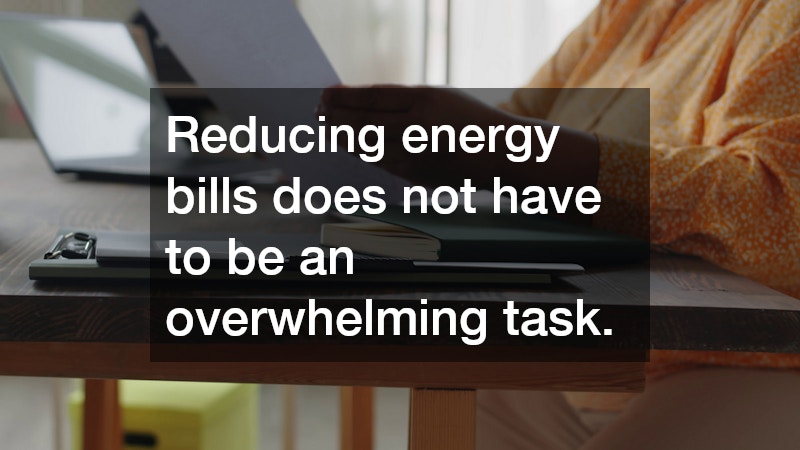As energy costs continue to rise, many homeowners find themselves overwhelmed with high energy bills. These expenses can place a significant strain on household budgets, leading individuals to search for effective solutions. A comprehensive home energy audit can be a transformative approach to understanding and reducing energy consumption, thereby lowering your energy costs over time.
Home energy audits are systematic evaluations of energy use within your property that pinpoint inefficiencies and identify opportunities for improvements. By assessing critical components of your house, such as insulation, heating systems, and windows, a home energy audit provides actionable insights.
This understanding can empower homeowners to make informed choices that not only reduce energy bills but also enhance comfort and environmental sustainability.
In this article, we will explore the many benefits of conducting a home energy audit. We will dive into understanding what a home energy audit involves, the potential savings from implementing recommended changes, and practical steps to start the process. From beginning to end, the goal is to provide a thorough guide that equips homeowners to take control of their energy usage.
Understanding a Home Energy Audit
A home energy audit is an in-depth review of your home’s energy usage patterns and current energy consumption. Specialized professionals typically perform these audits using advanced tools and techniques to assess energy efficiency. They examine elements like insulation levels, HVAC system performance, and light fixtures to offer a complete picture of energy utilization.
During the audit process, technicians use equipment such as blower doors and infrared cameras to identify leaks, drafts, and areas where energy loss occurs. This data-driven approach allows for pinpoint precision in detecting vulnerabilities that contribute to high energy bills. The results of the audit provide a detailed roadmap for targeted improvements that can significantly reduce energy consumption.
The insights gained from a home energy audit are not just beneficial for identifying problems but also crucial for planning future energy investments. Homeowners can prioritize improvements, such as upgrading insulation or replacing old appliances, based on the audit recommendations. This strategic approach ensures that energy improvements are made efficiently, maximizing return on investment and paving the way to substantial energy savings.
Saving Money Through a Home Energy Audit
One of the greatest advantages of conducting a home energy audit is the potential for significant cost savings. By identifying and addressing inefficiencies, homeowners can reduce their energy usage, which directly correlates to lower energy bills. Over time, these savings can add up, often covering the cost of the audit and the recommended improvements.
Energy audits provide customized suggestions that align with your home’s specific requirements, ensuring that improvements are both efficient and cost-effective. Simple changes, such as sealing air leaks or adding insulation, can result in notable reductions in energy consumption. Additionally, upgrading outdated fixtures and appliances with more energy-efficient options can further decrease your energy expenditure.
A home energy audit also helps homeowners take advantage of available rebates and incentives for energy-efficient upgrades. Many governments and utility companies offer financial incentives to encourage energy efficiency, which can offset initial outlay costs. By taking advantage of these programs, homeowners can enhance their return on investment while contributing to broader environmental goals.
Conducting a Home Energy Audit: Steps and Considerations
Embarking on a home energy audit requires careful planning and consideration of various factors. The first step is selecting a qualified and reputable energy auditor who is knowledgeable and certified. Numerous certification programs ensure that auditors have the expertise to provide thorough and accurate evaluations.
Once you have selected a professional, prepare your home for the audit by ensuring that all areas are accessible and major systems are functioning. Clear any obstacles around HVAC systems, windows, and doors, and ensure that all rooms are accessible to the auditor. This thoroughness allows the auditor to conduct a comprehensive and uninterrupted assessment.
After the audit, review the detailed report provided, which will outline areas of concern and suggested improvements. Prioritize these suggestions based on feasibility, cost, and potential savings while considering the availability of incentives for upgrades. By systematically addressing the issues identified in the audit, you can make meaningful strides toward a more energy-efficient home.
Reducing energy bills does not have to be an overwhelming task. With the help of a home energy audit, you can gain a deeper understanding of your home’s energy use and discover practical methods to improve efficiency. This step not only enhances your comfort but also contributes positively to the environment.
The long-term benefits of energy audits extend beyond just monetary savings. Enhanced property value, increased comfort, and a reduced carbon footprint are valuable bonuses of optimizing your energy use. Preparing your home for future sustainability challenges makes the investment in a home energy audit worthwhile.
.

